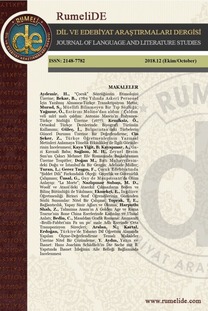Trauma and motivation in Justin Kurzel's Macbeth
Trauma and motivation in Justin Kurzel's Macbeth
Film adaptations of Shakespeare’s works face the unique challenge of interpreting the texts in a manner that would propel the unique qualities of the medium that allows it to convey multiple layers of meaning through the cinematic language of editing. The wealth of available interpretations from the timelessness of Shakespeare’s works is especially applicable to the cinematic medium as the methods of conveying meaning and expression increase exponentially with the camera as a free- moving entity around time, spaces, and characters. With the exception of Kenneth Branagh’s full-text adaptation of Hamlet, most directors make additions and subtractions to the original plays in order to convey their specific interpretive vision. Australian film director Justin Kurzel’s 2015 adaptation of Macbeth is one that, while being set physically in the historical past of the original play, presents relatively modern psychological concepts with regard to war and its traumatic consequences, as well as the trauma of loss and melancholia. This study analyzes Kurzel’s additions and subtractions to the source material, as well as the cinematic language utilized to convey how the trauma of loss, post-traumatic stress disorder, and the death drive work as motivational narrative thrusts for the actions Macbeth and Lady Macbeth undertake.
Keywords:
Shakespeare, Macbeth, Trauma, Psychoanalysis Justin Kurzel,
___
- Burnett, M.T. (1993). The 'fiend-like Queen': rewriting Lady Macbeth. Parergon, 11(1), 1-19. doi:10.1353/pgn.1993.0061.
- Curran, K. (2012). Feeling Criminal in Macbeth. Criticism, 54(3), 391-401. doi:10.1353/crt.2012.0024.
- Freud, S. (1917). On the History of the Psycho-Analytic Movement Papers on Metapsychology and Other Works. The Hogarth Press.
- Klein, M. (1940). Mourning and its Relation to Manic-Depressive States. International Journal of Psycho-Analysis, 21, 125-153.
- Kurzel, J. (Director). (2015). Macbeth [Film]. StudioCanal; Film4; DMC Film; Anton Capital Entertainment; Creative Scotland; See-Saw Films.
- Mills, J. (2006). Reflections on the Death Drive. Psychoanalytic Psychology, 23(2), 373-382. https://doi.org/10.1037/0736-9735.23.2.373.
- Segal, H. (1998). Introduction to the Work of Melanie Klein. Karnac Books.
- Shakespeare, W. (2013). Macbeth. Simon & Schuster. (Original work published 1623).
- Tasca, C., Rapetti, M., Carta, M.G., & Fadda, B. (2012). Women and Hysteria in the History of Mental Health. Clinical Practice & Epidemiology in Mental Health, 8, 110-119. 10.2174/1745017901208010110.
- ISSN: 2148-7782
- Yayın Aralığı: Yılda 6 Sayı
- Başlangıç: 2014
- Yayıncı: Yakup YILMAZ
Sayıdaki Diğer Makaleler
Üniversitelerde verilen edebiyat kuramları ve eleştiri yöntemleri derslerine yönelik bazı dikkatler
Necîb Mahfûz’un 'Hanzal ve polis' isimli kısa öyküsü üzerine bir değerlendirme
Gürkan DAĞBAŞI, Sıdıka Asya ERKAN
XVI. yüzyıl şuara tezkirelerinde huy ve davranışlara yönelik bazı tenkitler
Kök değerler açısından Açık Öğretim Ortaokulu Türkçe ders kitaplarının incelenmesi
Muhammed Ferîd Ebû Hadîd’in tarihi romanlarında Arap halk hikâyelerinin etkisi
Ortaokul öğrencilerinin okuduğu kitaplarda yer alan değerlerin tespit ve incelenmesi
İlker Ozan YILDIRIM, Bilginer ONAN
Varoluşun dayanılmaz ağırlığı: Gülten Akın’ın oyunlarında kadının temsili
